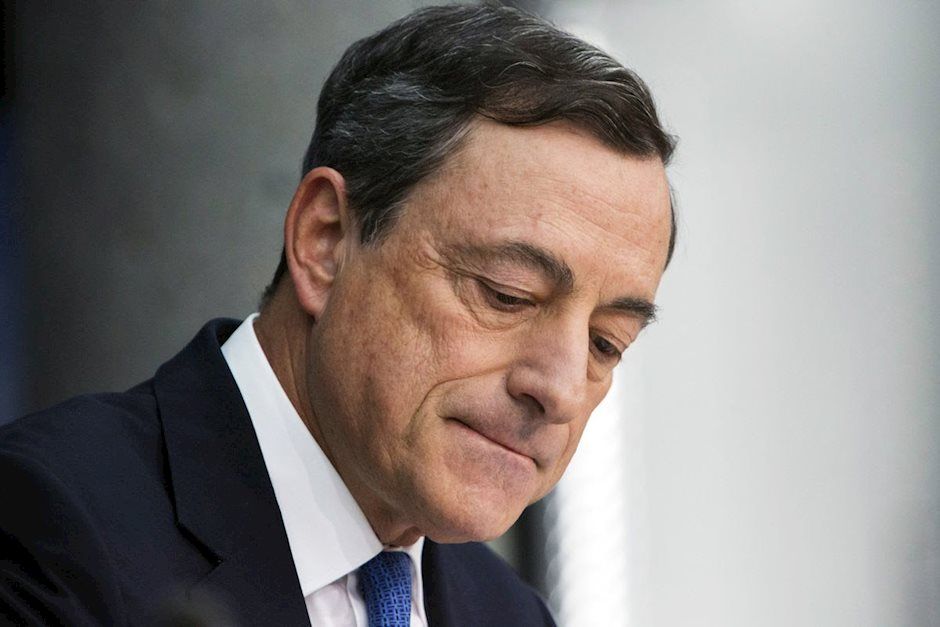European Central Bank monetary policy minutes reflect cautious growth

What you may have missed last week
-
US Dollar drops following Trump press conference but recovers after Federal Reserve comments
-
Brexit no longer biggest threat to UK
-
Economy but Sterling struggles European Central Bank monetary policy minutes reflect cautious growth
-
Disappointing data Down Under
-
China's worst fall in exports since 2009
Currency market overview
On Thursday, the US Dollar Index fell over 1.5 percent from the highs seen on Wednesday after Donald Trump's presidential press conference. Specific announcements about the US economy and trade strategy were thin on the ground, meaning more uncertainty for investors, and this took its toll on the Dollar, which fell nearly two percent as the press conference took place.
Key points from the press conference could have significant implications for the US, its economy and global relationships – from political and trade perspectives. These include:
-
The President Elect seemed to be playing the blame game. While not implicating Russia's President, Vladimir Putin, Trump also condemned US media and companies.
-
Mr Trump stated that existing trade deals were a disaster.
-
The US President Elect continued his ongoing tirade against Obamacare and said that he would replace it within the year.
-
He also reaffirmed his commitment to building a wall across the border between the USA and Mexico.
The US Dollar recovered slightly following the latest announcements from Federal Reserve officials. Federal Reserve Chair, Janet Yellen, observed that the US economy is "doing quite well" without serious short term obstacles. She pointed out that unemployment has now reached low levels, with a "strong labor market, and wage growth picking up." Chicago Fed President, Charles Evans, added that he expected the new stimulus policies from Trump to "increase growth by a couple of tenths over the next two years." These comments were reiterated by Philadelphia Fed President, Patrick Harker, who commented that the US economy is "starting 2017 off on a good foot".
Brexit no longer biggest threat to UK economy
Across the Pond, the Governor of the Bank of England (BoE), Mark Carney, announced to the Treasury Select Committee that Brexit is not the biggest threat to the UK economy, commenting that the EU faces greater stability risks than the UK in the event of a ‘hard' Brexit. He also commented that recent positive data may also state the case for upgrading the UK growth forecasts, which may have been too pessimistic initially. The Pound welcomed this news, as well as a 1.7% increase month-on-month in the Halifax House Price Index, currently hovering just above its lowest levels against the US Dollar and showing small signs of recovery. This follows the Pound reaching its lowest levels in ten weeks on Monday, after the UK Prime Minister's weekend interview, talking about an absolute break from Europe, spooking markets. However, Theresa May framed it positively, saying she sees nothing but opportunity ahead.
Sterling has been floundering against the Euro this week, gaining a little ground in the past few days following US and EU economic announcements. This wave of volatility is set to continue and reflects the ongoing uncertainty around Brexit and the future of the European Union.
European Central Bank (ECB) releases monetary policy meeting minutes
The ECB's Governing Council's monetary policy minutes observed that Euro area recovery continues "at a moderate but firming pace", with Gross Domestic Product (GDP) up quarter-on-quarter by 0.3% and other data showing signs of economic expansion and slightly better growth in the final quarter of 2016 and Q1 2017. At the same time, the committee voiced concerns that European growth prospects were "dampened by political and economic uncertainty, as well as a sluggish pace of implementation of structural reforms and remaining balance sheet adjustments in a number of sectors."
The committee recommended a "steady-hand approach to financial conditions in the Euro area over the period ahead to allow the recovery to mature and strengthen." It will be interesting to see how the Euro responds to this cautious approach in the coming days and weeks, given the uncertainty in a number of other world economies.
Disappointing data Down Under
Australian retail sales data came in with disappointing results, missing November's forecasts, which prevented the Australian Dollar from making the most of the Sterling-Australian Dollar rate going back to November 2016 levels.
Despite the latest unimpressive data, there is a general consensus among analysts that the Australian economy is in a good place for the year ahead, and the Australian Dollar remains strong. In New Zealand, December 2016 figures showed a 2.1% fall in house prices, as increased supply started to hamper the seemingly never ending price growth. The New Zealand Dollar strengthened against Sterling, as the Pound continues to struggle.
The Australian and New Zealand Dollars rely heavily on China's importers; given worse than expected Chinese inflation data and the dramatic fall in exports, there could be volatility in store for the commodity currencies, who would have been hoping for news of Chinese economic recovery.
China's worst fall in exports since financial crisis
In Asia Pacific, we received news overnight that China posted its worst fall in exports since 2009. This came as a result of a narrowing of China's trade surplus in December at a much greater rate than expected, in response to sluggish global trade and slowing import growth.
And so, the uncertainty continues. While there will be ups and downs, ongoing volatility will present opportunity for both currency buyers and sellers. Get in touch to get to grips with the latest market movements and plan your currency strategy.
Commentary from the Halo Financial Team. Need a trusted FX broker? Register today for more insights and strategies.
Author

Halo Financial Team
Halo Financial

















